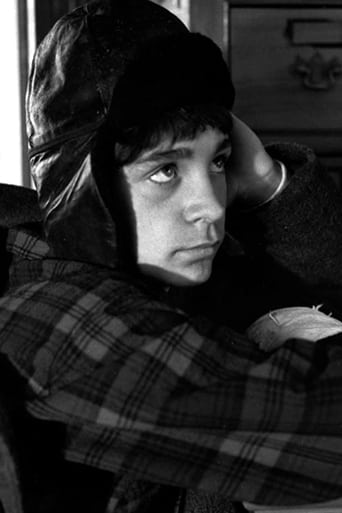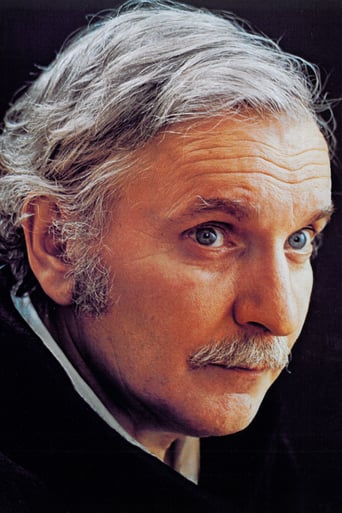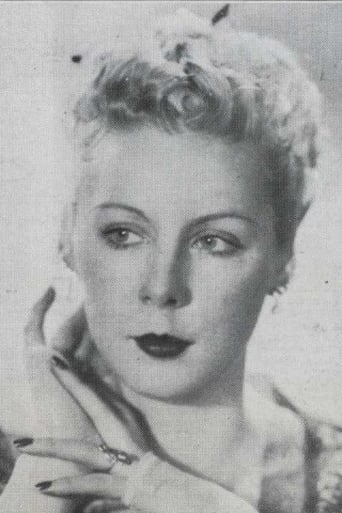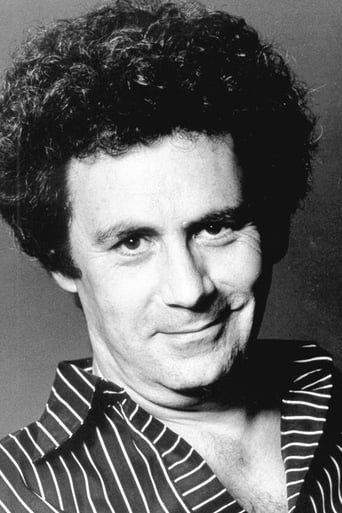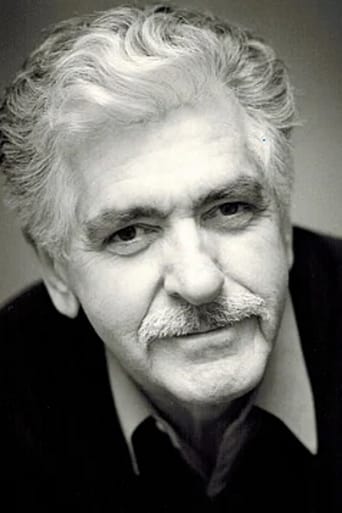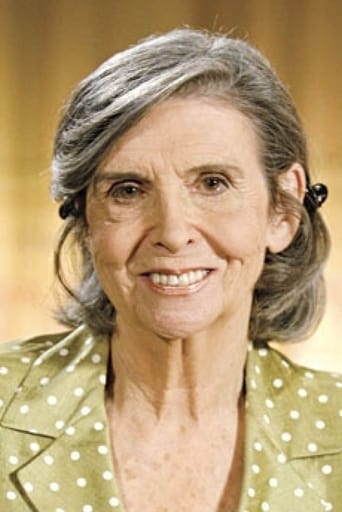AniInterview
Sorry, this movie sucks
SunnyHello
Nice effects though.
Helloturia
I have absolutely never seen anything like this movie before. You have to see this movie.
Kodie Bird
True to its essence, the characters remain on the same line and manage to entertain the viewer, each highlighting their own distinctive qualities or touches.
teatag
This film is set at Christmastime in a remote village in Quebec, the main adornment of which is the mountainous pile of dirt at an asbestos mine.The story starts with Jos Poulin at the mine. Jos doesn't like the job, so he quits and goes to work at a logging camp. Jos doesn't like that job either, so he wanders home.In the meantime there's Benoit, a 15 year old who lives with his Uncle Antoine and Aunt Cecile. Antoine and Cecile own the general store, and Antoine is also the local undertaker. Antoine and Cecile employ a clerk named Fernand, who is also the undertaker's assistant. They also employ a girl of about 15 named Carmen, who lives with them. Her father drops by on payday to collect Carmen's pay. Carmen seem to be an unhappy person. She and Benoit lust after each other, but nothing comes of it.Benoit is an altar boy. He drinks from the bottle of communion wine, then he watches the priest do the same thing, so that's okay.On Christmas Eve, Jos's oldest son, Marcel, dies. Jos doesn't know this because he's still slogging home from the logging camp. Antoine goes to fetch the body, but he takes Benoit instead of Fernand with him for no discernible reason other than to allow Cecile to play Cougar to Fernand. So she does. And they do.Antoine and Benoit set out by horse-drawn sleigh to collect Marcel's body. Although it's the late 1940s (or the late 1960s, judging by the shortness of Carmen's dress), Antoine doesn't seem to have an automobile. But if he had one the main even of the film wouldn't have happened, and the film would be more pointless than it is.The main event is this: After arriving at the Poulin house with the pine box for Marcel's body, Marcel's mother offers Antoine and Benoit a meal, of which Antoine partakes in a rather crude fashion -- grunting and belching all the while. Oh, he's also drinking from the 1.5 litre bottle of grappa (or something more lethal) that he brought along for the trip.Antoine and Benoit get Marcel's body into the pine box and onto the back of the sleigh. And off they go, as Antoine continues to chug the bottle of grappa. When Antoine falls asleep (or into a semi-comatose state), Benoit decides to liven things up by stirring the horse into action. Now the thing that I expected to happen does happen. The pine box containing Marcel's body slides off the back of the sleigh.Benoit brings the sleigh to a halt about 100 feet from the box. After pounding on Antoine to bring him to half-awakeness, they trudge to the box, which Antoine is unable to budge because his muscles have turned to mush after so many oral doses of grappa. He cries about his wasted life.Antoine and Benoit return to the store -- which, cozily, is also where Antoine, Cecile, Benoit, Carmen, and Fernand live. Benoit, of course, opens the door to Cecile's boudoir to find Fernand there. Some muttering (but no violence) ensues before Fernand and Benoit set off to retrieve the box. Benoit, amazingly and despite the remarkable event that has just befallen him, can't remember which of two possible routes to follow back to the box.Well, it doesn't matter. Because they eventually arrive back at the Poulin house, sans box, which has somehow transported itself into the Poulin's parlor. There, the wandering Jos and his family are kneeling around the open box, staring at the dead Marcel. And wondering, no doubt, why the hell they agreed to act in such a pointless film.But maybe they knew that it would someday be voted the best Canadian film of all time. I'd hate to see the second-best one.
GeoPierpont
I have this romantic notion of relocating from the insanity of city life and retreat to the quiet slow paced eternally passive moments of a rural existence. After viewing this film, in it's entirety (touche), I have left this silly notion behind forever.The beautiful scenery and view of a serene, quaint, pastoral countryside is this films greatest asset. The comedic aspects of falling over a barrel of nails, a missing coffin, and a tight corset might have saved the day but not even an approximation of entertainment.After reviewing comments claiming this is the longest running, highest rated Canadian film I am persuaded to not even visit this country!High recommend for locals who want to see their hood on the silver screen. It is an extremely labored, plodding script with very little to offer other than: There is NO Place Like Home!! AMEN
bandw
This movie is as much about a time and a place as it is about its characters. The time is the 1940s and the place is a small mining community in Quebec, Canada, at Christmas time. The movie has such an air of authenticity that I felt that I had gotten a glimpse into what life was like in that community at that time.The story centers on the experiences of fifteen year old Benoit, an orphan living with his uncle and aunt who run a general store, as well as a funeral parlor. Also living there is Carmen, a young woman of Benoit's age. Most transitions from adolescence to adulthood take years, but Benoit goes a long way to making that transition in a matter of a couple of days. The events that transpire in those days change Benoit from a rather carefree innocence to a sober appreciation of the complexities of life and death. We are witness to the joys, frustrations and sorrows of the people we meet.Benoit's youthful experiences are universal in the large (sexual awakening, death, duplicitous behavior, dashed expectations), but they are unique to him and that uniqueness is what makes coming of age stories ceaselessly interesting. There is a scene where Benoit is chasing Carmen around among the caskets (such life amid the symbols of death) and he finally catches her as she falls to the ground. He puts a hand on her breast, exciting for him even though she is fully clothed. What happens then is one of those moments that make these experiences unique--neither Benoit nor Carmen knows quite what to do at this juncture and they wind up just staring at each other. If you cannot appreciate such a tender scene, then you will likely not appreciate this movie.Several themes lurk in the background. One is the friction that exists between the French and English speaking peoples of the province. After finishing a beer in a bar, one of the French Canadians says, "That's one that the English will not get." The bitterness between the English speaking Quebecers and the francophone Canadians is brought home in the scene that has the English speaking mine owner tossing cheap Christmas gifts into the snow from his horse-drawn carriage. The harsh life of the mine workers is portrayed with just enough emphasis to make the point. The ugly and oppressive presence of the asbestos mine casts a somber shadow over the entire proceeding, particularly given the health consequences of the mineral.Director Jutra chose Jacques Gagnon from the townspeople to play the role of Benoit, instead of casting a professional young actor for the role. I think this turned out to be a fortuitous choice, since Gagnon gives a surprisingly natural performance, aided by some skill-full camera work. Many of the local townspeople appear in the movie, adding to the feeling of authenticity; the use of natural lighting adds to this as well.Several people have accused this movie of having no plot. I am always puzzled what such people mean by that. This movie presents a sequence of interrelated events leading to a dramatic final scene. To me that is a plot. I wish some of these plot deniers would spell out what they mean by their comment. Maybe I could see the charge sticking when applied to a movie like Warhol's "Empire" (a continuous shot of New York's Empire State Building for eight hours and five minutes), but not to this movie.I found this engaging and altogether worthwhile.
Zahgurim-2
Explores the frontiers of extreme boredom. Life in a small Canadian town in winter as an experiment in extreme sensory deprivation. Absolutely nothing happens as viewed through the eyes of a blank, deadpan, totally uninteresting protagonist. Viewers of this film should be prepared to hallucinate in the style of "Altered States".In a groundbreaking study, David Snowden found that he could predict Alzheimer's thirty years in advance by comparing the autobiographical essays of nuns as they entered the convent. Those who eventually suffered the disease wrote in simple direct prose. The essays were quiet and contemplative with little optimism or episodes of joy.Now, why did I mention that? Perhaps , my mind begins to slowly unravel watching this interminable, autobiographical, contemplative film which shows, in simple direct style, the bleak and stoic life of a small community, living next to giant slag heaps of asbestos.This film became popular at the height of the Quebec separatist movement because of its presentation of this community as permanently wounded victims. Tragically, its writer-director was soon diagnosed with Alzheimer's disease in the early 1980s and apparently committed suicide.

